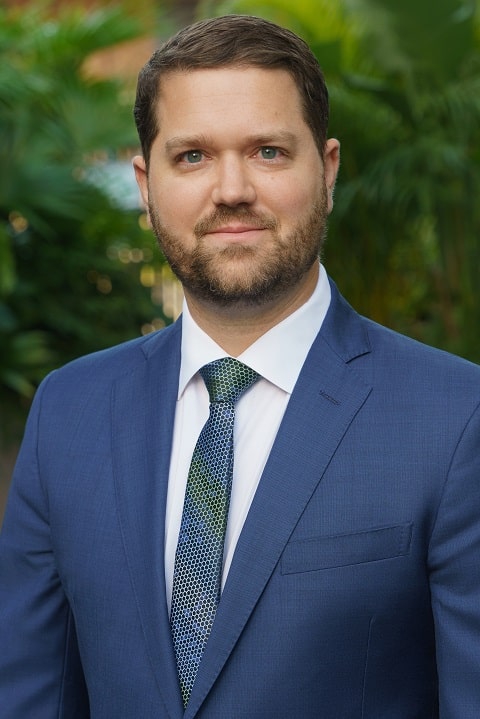Waking up in a hospital bed with no memory of how you got there is a frightening and life-changing experience. For many in Louisiana who have suffered a traumatic brain injury, this scenario is all too real. Such injuries often come with overwhelming medical bills, ongoing treatment, and uncertainty about the future. If this sounds like your situation, a Louisiana catastrophic injury lawyer can guide you through the legal process to seek the compensation you need to rebuild your life.
The Role of the Glasgow Coma Scale (GCS)
The Glasgow Coma Scale (GCS) is a vital tool that medical professionals use to assess the severity of a brain injury. This scale measures responses in three categories:
- Eye opening
- Verbal response
- Motor response
Scores range from 3 (the most severe) to 15 (mild), with lower scores indicating more significant trauma. These scores help doctors determine the necessary treatment plan and estimate recovery time.
Why GCS Scores Matter in Legal Claims
In Louisiana, GCS scores don’t just guide medical care—they also play a significant role in personal injury claims. These scores provide evidence of the injury's impact on your life, including:
- Medical costs: More severe injuries often require more expensive and prolonged treatment.
- Lost wages: Severe brain injuries can prevent victims from returning to work.
- Pain and suffering: The extent of the trauma can influence non-economic damages.
Insurance companies often try to downplay the severity of a brain injury to minimize payouts. However, an experienced attorney understands how to use GCS scores and other medical evidence to build a strong case for fair compensation.
How a Louisiana Personal Injury Lawyer Can Help
Navigating a traumatic brain injury claim is complex, but you don’t have to face it alone. A skilled lawyer can:
- Collect and analyze medical records, including GCS scores.
- Work with medical experts to demonstrate the full impact of your injury.
- Negotiate with insurance companies to seek the settlement you deserve.
If you or a loved one has suffered a traumatic brain injury, reaching out to a Louisiana personal injury lawyer can make all the difference. They will fight to protect your rights and help you secure the financial support you need to focus on your recovery.
Yes! I want a free case evaluation.
You shouldn’t have to worry about legal battles while you’re trying to heal. Let an advocate take that burden off your shoulders.
Overview of the Glasgow Coma Scale (GCS)
The Glasgow Coma Scale (GCS) is a medical tool used to assess a person's level of consciousness after a head injury. It's crucial in evaluating brain injuries and determining the severity of head injuries. In Louisiana personal injury cases, the GCS score can significantly influence the settlement value. A lower GCS score often indicates more severe injuries, possibly leading to higher compensation. This scale helps judges, lawyers, medical professionals, and insurance companies understand the impact of a traumatic brain injury on a victim's life.
Definition and Purpose
The GCS was developed to provide a consistent, objective way to measure consciousness levels. It helps medical professionals quickly assess the condition of patients with brain injuries. By scoring eye, verbal, and motor responses, medical experts can categorize the injury as mild, moderate, or severe. In Louisiana, understanding the GCS score is vital for injury lawyers helping clients with personal injury claims. The score is also a key factor for insurance companies when evaluating claims.
Components of the GCS
The Glasgow Coma Scale includes three main components:
- Eye Response (E)
- Score ranges from 1 to 4.
- 4: Eyes open spontaneously
- 3: Eyes open to verbal command
- 2: Eyes open to pain
- 1: No eye opening
- Verbal Response (V)
- Score ranges from 1 to 5.
- 5: Oriented and converses normally
- 4: Confused conversation
- 3: Inappropriate words
- 2: Incomprehensible sounds
- 1: No verbal response
- Motor Response (M)
- Score ranges from 1 to 6.
- 6: Obeys commands
- 5: Localizes pain
- 4: Withdraws from pain
- 3: Flexion to pain (decorticate response)
- 2: Extension to pain (decerebrate response)
- 1: No motor response
Interpretation of GCS Scores
A GCS score is determined by adding the scores from each component, ranging from 3 to 15. Here’s what those scores typically mean:
- Severe Brain Injury (3-8): Patients with these scores often face long-term medical care and rehabilitation. In Louisiana, a severe score may lead to higher settlements to cover medical expenses and quality of life impacts.
- Moderate Brain Injury (9-12): These scores indicate a significant level of impairment but potentially less than severe. Settlements may still cover medical costs and any cognitive impairment resulting from the injury.
- Mild Head Injury (13-15): Though termed mild, these injuries can still lead to issues like memory loss or chronic pain. Attorneys must ensure fair compensation reflecting the injury's impact on normal life.
GCS Scores and Traumatic Brain Injury (TBI)
The Glasgow Coma Scale (GCS) is a crucial tool used by medical professionals to assess the severity of traumatic brain injuries (TBI). It evaluates a patient's level of consciousness through three aspects: eye response, verbal response, and motor response. Each aspect is scored, with a total possible score ranging from 3 to 15. A lower score indicates a more severe brain injury. Understanding GCS scores is essential for personal injury cases, as they can directly affect settlement values, especially in Louisiana where personal injury law plays a vital role.
Degrees of TBI Severity
Traumatic brain injuries are grouped into three categories based on GCS scores:
- Mild TBI: Scores of 13-15. This includes concussions and mild head injuries. Patients may experience temporary loss of consciousness, confusion, or cognitive impairment.
- Moderate TBI: Scores of 9-12. These injuries may cause longer unconsciousness or memory loss. Patients require more medical care and possibly hospitalization.
- Severe TBI: Scores of 3-8. These injuries often result in significant cognitive and physical impairment, sometimes leading to chronic pain or lifelong disability.
Here's a simple table to summarize:
| GCS Score Range | TBI Severity | Potential Outcomes | Impact on Settlement |
|---|---|---|---|
| 13-15 | Mild | Full Recovery Possible | Lower Settlement |
| 9-12 | Moderate | Some Long-term Effects | Moderate Settlement |
| 3-8 | Severe | Chronic Impairment Likely | Higher Settlement |
A personal injury attorney in Louisiana can help ensure fair compensation reflecting the severity of the injury. They work with brain injury attorneys and medical professionals to argue effectively for a fair settlement. Understanding the GCS scores helps all parties involved to accurately assess the situation, ensuring that the injured individual receives the support and compensation they need to maintain a reasonable quality of life.
The Role of GCS in Compensation Claims
In personal injury law, the Glasgow Coma Scale (GCS) is a vital tool. It helps assess the severity of a brain injury. This scale measures the level of consciousness after a head injury. It evaluates three responses: motor, verbal, and eye-opening. GCS scores can greatly affect the value of a personal injury claim in Louisiana. Knowing how it works and its legal implications is crucial to understand the value of your TBI claim.
Importance in Evaluating Severity
The GCS is important in evaluating the severity of injuries. A lower score signals more severe brain injuries. Such cases often require extensive medical care. Medical professionals use GCS to assess and document a patient's condition in medical records. This information can significantly impact a personal injury lawsuit. For severe injuries, higher settlement values are often awarded. Understanding GCS can help personal injury lawyers build strong cases for fair settlements.
Impact on Settlement Negotiations
In settlement negotiations, GCS scores play a vital role. Insurance companies consider these scores when determining compensation. A score below eight may indicate a severe injury and lead to more medical expenses. This can mean a higher settlement offer. Conversely, higher scores might suggest a mild head injury and lower the settlement amount. Personal injury attorneys use GCS to argue for fair compensation.
Limitations of GCS in Legal Contexts
Despite its importance, GCS has limitations in legal contexts. It does not account for cognitive impairment or memory loss that may affect quality of life. Other factors, such as chronic pain and loss of consciousness duration, should be considered. A personal injury attorney can help navigate these complexities. They may highlight aspects that the GCS does not capture to ensure just compensation. In Louisiana, understanding these limitations can make a difference in insurance claims and personal injury claims.
Overall, the Glasgow Coma Scale serves as a critical component in personal injury cases. However, it's essential to look beyond the numbers to achieve a fair settlement.
Incorporating GCS Scores into Damage Assessments
The Glasgow Coma Scale (GCS) measures a person's level of consciousness after a head injury. It is vital in assessing brain injuries, which can impact personal injury settlement values. In Louisiana, understanding GCS scores is crucial for fair compensation.
GCS scores range from 3 to 15. A score of 15 indicates normal brain function, while a score below 8 shows severe injury. When a GCS score is low, it suggests more serious injuries, leading to higher medical expenses. This score can aid personal injury attorneys in Louisiana to understand the severity of the injury, creating a stronger personal injury claim for fair settlement.
Broader Health Evaluations
A GCS score is just one part of assessing injuries after an accident. Medical professionals will often conduct additional evaluations to present a clear picture of a person's health. Tests may include CT scans, MRIs, and cognitive tests to check for any cognitive impairment or brain injuries. These tests will be part of medical records used in negotiations or a personal injury lawsuit.
In Louisiana, having complete health evaluations supports a higher settlement value. The insurance company needs clear evidence of all medical care and ongoing needs like chronic pain management. This comprehensive health assessment can help determine a fair settlement and ensure the injured party receives proper medical care.
Psychological and Emotional Considerations
Psychological and emotional well-being is also vital when calculating settlement values. Traumatic brain injuries can lead to depression, anxiety, and memory loss. These issues can affect quality of life and the ability to return to a normal life. In Louisiana, personal injury law recognizes these non-economic damages in claims.
A personal injury lawyer can help clients secure compensation for these impacts. By presenting evidence of psychological and emotional harm, lawyers can argue for higher settlements. This can mean better support for the injured person’s recovery and improvement of life quality.
In summary, incorporating GCS scores, detailed health evaluations, and emotional impacts ensures a comprehensive approach when assessing personal injury settlement values in Louisiana. Legal professionals use these factors to advocate for their clients, aiming for fair compensation to cover medical and emotional needs resulting from head injuries.
How Lawyers and Insurance Adjusters Use GCS Scores
The Glasgow Coma Scale (GCS) is crucial in assessing brain injuries in personal injury cases. It helps lawyers and insurance adjusters understand the severity of a brain injury. The scale scores a patient’s motor response, verbal response, and eye-opening reaction. Scores range from 3 to 15, with lower scores indicating severe brain injuries. This score guides both legal and financial evaluations.
A low GCS score often means more severe injuries and significant medical expenses. Lawyers and insurance companies use this data to determine settlement values. Higher settlements are typically required for severe brain injuries, given the impact on the victim's quality of life and potential need for long-term medical care.
Strategies in Negotiations
Negotiating a fair settlement involves medical professionals and legal experts. Lawyers use the GCS score as evidence to argue for higher compensation. Here are some strategies they use:
- Presenting Medical Records: This includes GCS scores to demonstrate the injury's severity.
- Highlighting Long-Term Care Needs: Severe injuries may require lifelong medical care, which increases settlement amounts.
- Showing Impact on Normal Life: If the injury affects the victim's ability to live a normal life, this can increase the settlement value.
- Documenting Loss of Consciousness: This aspect can indicate a more severe head injury, impacting settlement discussions.
Insurance companies often try to minimize payouts. Thus, a strong case highlighting the GCS score’s implication is crucial for fair compensation.
Case Studies and Examples
In Louisiana, personal injury law is influenced heavily by documentation, including GCS scores. Here are some examples:
- Case Example A: A plaintiff with a GCS score of 5 after a motor vehicle accident received substantial compensation due to demonstrated cognitive impairment and chronic pain.
- Case Example B: In a slip and fall case, a victim with a mild head injury, evidenced by a GCS score of 14, managed to secure a lower, yet fair settlement. This was due to effective presentation of ongoing memory loss affecting their work life.
- Case Example C: A traumatic brain injury case with a GCS of 8 was settled for a higher value. The settlement was based on detailed medical records indicating the injured party’s need for long-term support.
In Louisiana, the law requires robust evidence for severe injury claims. Therefore, using GCS scores correctly is essential for achieving a fair settlement. Personal injury attorneys in the state often base their strategies on extensive medical documentation, making the most of the data provided by the GCS.
If you or a loved one has suffered a traumatic brain injury, don’t face the challenges of recovery and legal claims alone. Contact our LJBLegal team today at 985-240-9773 to learn how we can help you secure the compensation you need to move forward. Call now or fill out our online form to schedule a free consultation. Let us fight for your rights while you focus on healing.







